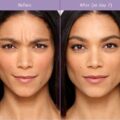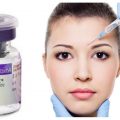An alcoholic drink is a drink that contains ethanol, a type of alcohol produced by the fermentation of grains, fruits, or other sources of sugar. The consumption of alcohol plays an important social role in many cultures. Most countries have laws regulating the production, sale, and consumption of alcoholic beverages. About 2 billion people worldwide consume alcoholic drinks, which can have immediate and long-term consequences on health and social life.
Botox is derived from C. botulinum bacteria, which are present in many natural settings, including soil, lakes, forests, and the intestinal tracts of mammals and fish. Naturally occurring C. botulinum bacteria and spores are generally harmless. Problems only arise when the spores transform and the cell population increases. At a certain point, the bacteria begin producing Botulinum toxin, the deadly neurotoxin responsible for botulism.
When Botox is appropriately used in a therapeutic context, it is safe and has few side effects, the American Osteopathic College of Dermatology report. Manufacturers make Botox injections with very small doses of Botulinum toxin. The drug can temporarily paralyze muscles, which can benefit people with various muscle or nerve disorders.
The primary use of Botox is reducing the appearance of facial wrinkles. According to the American Board of Cosmetic Surgery, Botox injections are the most popular cosmetic procedure nationwide. In 2016, over 7 million people had Botox treatments.
The effects are temporary, lasting 3–12 months, depending on the type of treatment.
People often request the injections in the following areas of the face:
- wrinkles between the eyebrows, called frown lines, glabellar lines, or elevens
- wrinkles around the eyes, known as crow’s feet
- horizontal creases in the forehead
- lines at the corners of the mouth
- “cobblestone” skin on the chin
However, the FDA has only approved the injections for use around the eyes and on the forehead.
Research has not shown whether Botox could improve dark circles under the eyes.
Commercial preparations of Botulinum toxin include:
- onabotulinumtoxin A (Botox)
- abobotulinumtoxin A (Dysport)
- incobotulinumtoxin A (Xeomin)
- rimabotulinumtoxin B (Myobloc)
- prabotulinumtoxin A (Jeuveau)
People casually use the term “Botox” to describe all of these products, though Botox is a registered trademark that one company owns.
How does it work?
Botox is a neurotoxin. These substances target the nervous system, disrupting the nerve signaling processes that stimulate muscle contraction. This is how the drug causes temporary muscle paralysis. In order for any muscle to contract, the nerves release a chemical messenger called acetylcholine at the junction where nerve endings meet muscle cells. Acetylcholine attaches to receptors on the muscle cells and causes the cells to contract, or shorten. Botox injections prevent the release of acetylcholine, which stops the muscle cells from contracting. In this way, the toxin helps the muscles to become less stiff. READ: How Long Does a Botox Shot Last?
Can I drink Alcohol before a Botox?
Cosmetologists and experts in skin care say it’s important that you do not drink alcohol before any botox appointment, as besides the obvious side effects that alcohol can cause, it will also thin your blood. This means that there is far more likelihood of you experiencing botox bruising. If you have a tendency to bruise easily, then avoiding alcohol will at least ensure that any bruising that does appear is kept to an absolute minimum. The alcohol should not affect the outcome of your results, providing you choose a reputable, trusted, and experienced botox practitioner such as a skilled independent nurse prescriber, but it will increase any bruising around the treated areas. Therefore, in order to ensure you can begin enjoying the results as soon as possible, and with minimal bruising, we would most definitely advise that you do not consume alcohol in the lead up to your botox treatment – or any treatment where bruising or bleeding are potential side effects, for that matter.
Beyond the botox, it is important to note that women who drink alcohol may increase their risk of breast cancer and head and neck cancers. One recent study published in the Journal of the American Medical Association found that consuming as few as three to six alcoholic drinks a week may be linked to a 15 percent increased risk of breast cancer. READ: Can I Go For A Walk After Botox?





